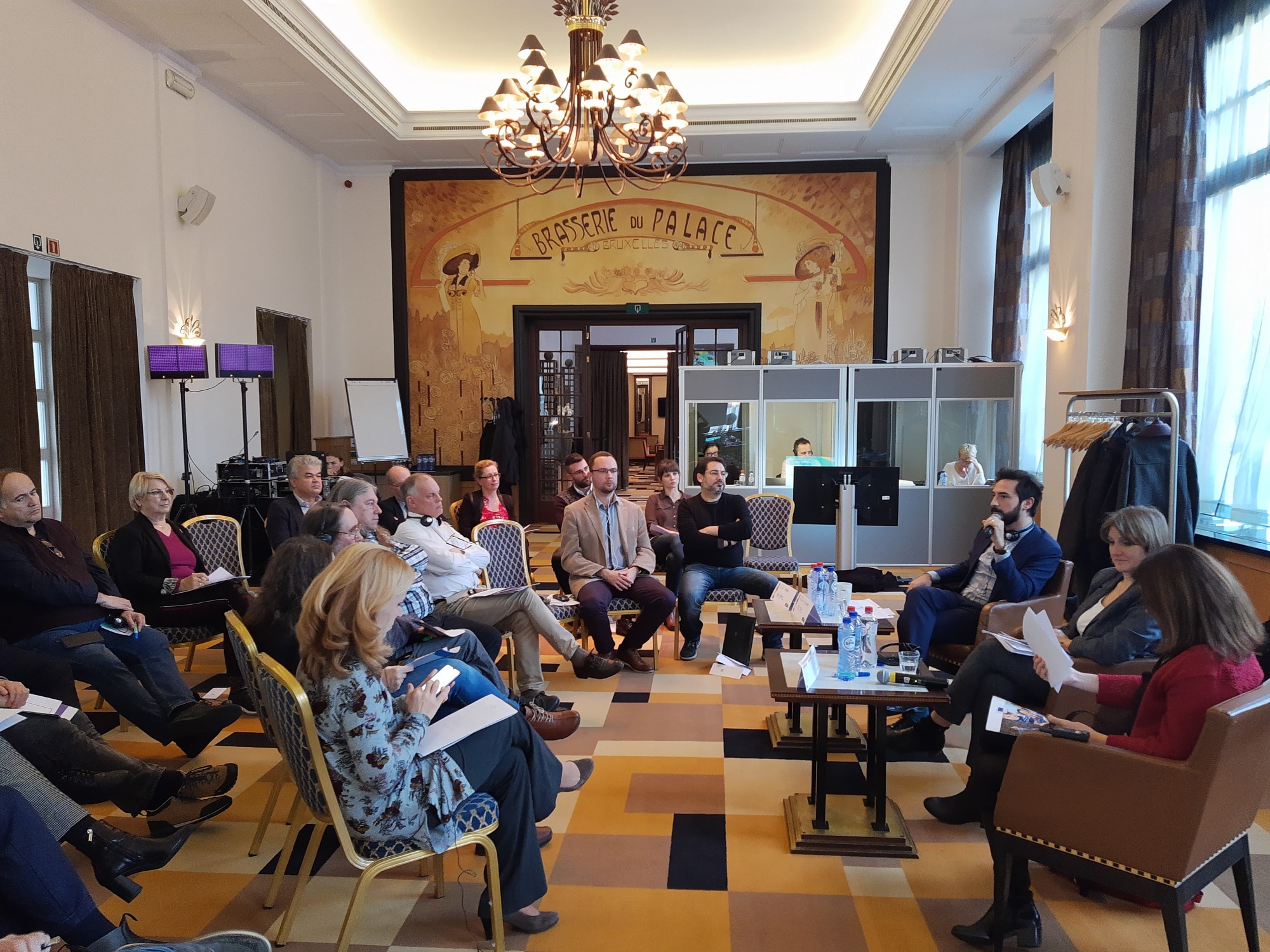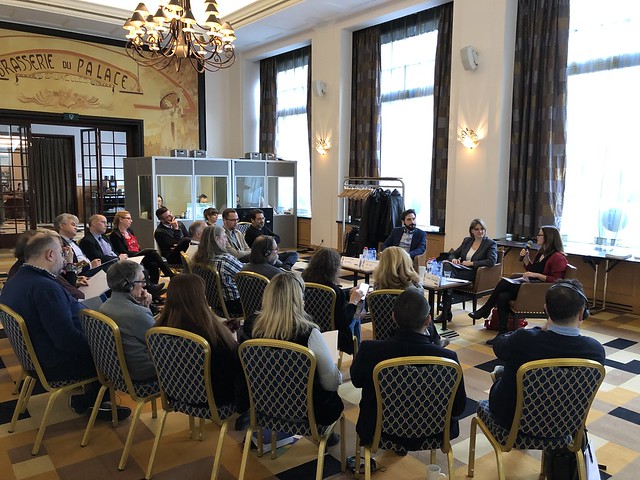Opening-up the European Semester: ETUCE-ETUI seminar helps trade unions develop the tools to engage
Published:
Related topics
Education and its workers are increasingly affected by the European Semester, the EU’s annual policy coordination process. European Commission concerns about government finances still hold back vital investment in public services.
Now education trade unions from across the EU want to open the European Semester up to democratic oversight and input. We are coming together to strategise and plan actions which will build a sectoral response and a broad social alliance.
- Read more about ETUCE’s activities and policy on the European Semester
- Check out our proposal for education priorities for the Annual Growth Survey 2020
- Read our statement “Turn the tide: Invest in Education”
On 12-13 December, education trade union representatives from across EU countries gathered in Brussels to acquire new knowledge, share practices and elaborate strategies to intervene effectively in the European Semester process. The training seminar was organised by ETUCE in partnership with the European Trade Union Institute (ETUI).
The European Semester is the annual economic and social governance process through which the EU monitors countries’ performance and steers national reforms towards convergence on key EU priorities. While the early years of the Semester were clearly focused on financial discipline and respect for the rules of the Stability and Growth Pact, a progressive shift has gradually taken place. There is now some rebalancing in the dominance of economic and social priorities. However, the ‘social’ recommendations remain subordinate to the macroeconomic recommendations, which often call for fiscal consolidation measures or even for spending cuts.
A decade of austerity and focus on fiscal targets have raised concerns about growing inequalities across and within European countries. As an answer, in 2017, EU leaders proclaimed the European Pillar of Social Rights. The Pillar consists of a series of rights and principles which aim to boost social convergence in Europe, including through the mechanisms of the European Semester. The first principle of the Pillar confirms that everyone has the right to quality education, and that education is essential for improvements in the economy, the labour market, and society. Thus it is no surprise that the Semester now has yearly Country Specific Recommendations (CSRs) on education for all EU countries.
Education trade unions are strong advocators for equal access to publicly funded high-quality education. We represent front-line professionals who respond to the needs of the most disadvantaged students every day. They are addressing both the consequences and the structural causes of inequalities. However, their voice is not always heard in decisions about educational investment and reforms.
The ETUCE-ETUI seminar offered participants the occasion to learn more about the EU’s macroeconomic framework, and to reflect on possibilities for a more social, open and democratic European Semester. Participants debated with European Commission officials about how they can better integrate their voice in the process and shared their own stories of getting involved.
The education trade unions represented made progress in building a shared message on the European Semester. They also made plans to engage with others on key issues: investment; the drifts towards privatisation; teacher shortages; inequalities in education. To do this we need enhanced knowledge sharing, communication and campaigning in order to get our message across and build public support. This will give us strength in our defence of quality public education as a force for social progress.
